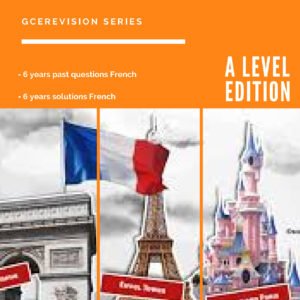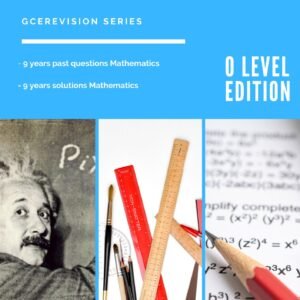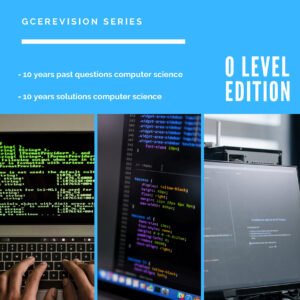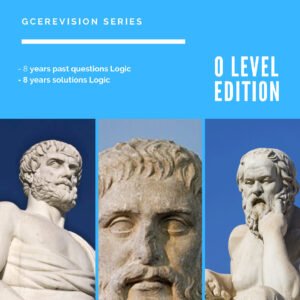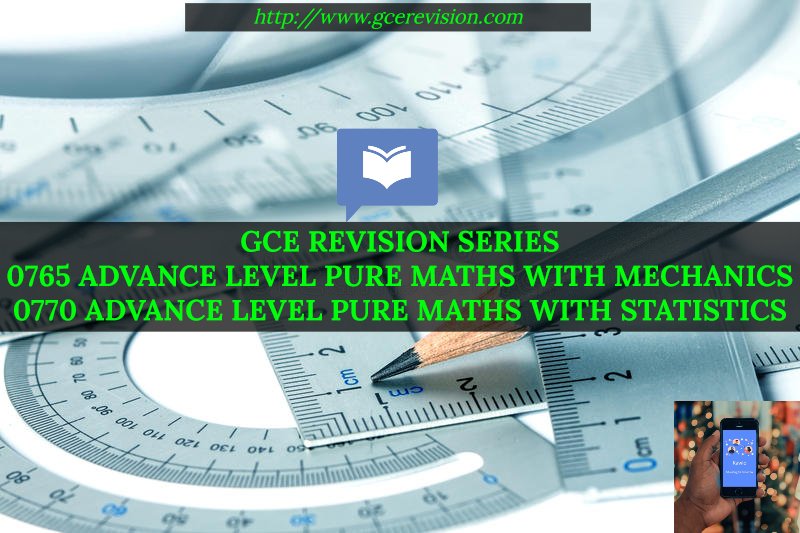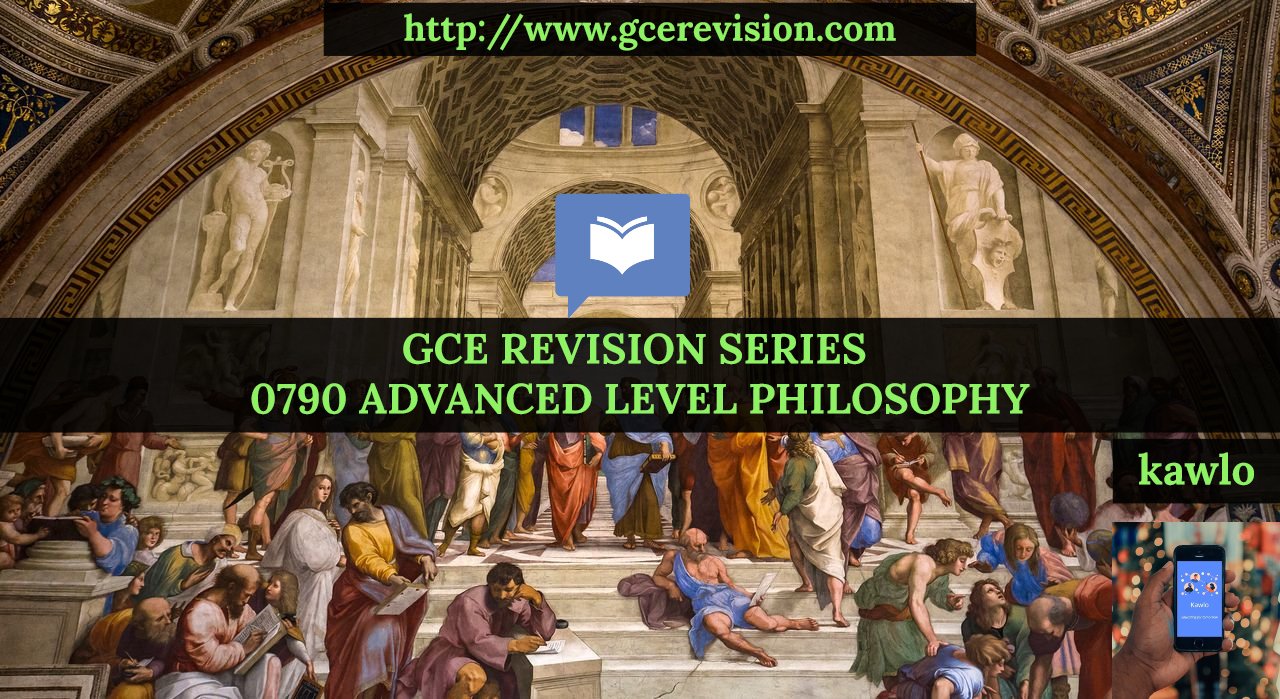SECTION ONE: LOGIC
1. Read the following passage and answer the questions that follow:
Taxi drivers within the Nkongsamba City Council held a crucial meeting to review taxi fares within the town and its environs. They resolved to increase the fares commensurate with the distances covered. The Government Delegate of the Nkongsamba City Council equally held a number of conciliatory meetings with motor-bike riders who would soon keep off the main streets and transport passengers into the quarters. Most
stakeholders in this sector were discontented with the decision.
There was evidence that the Forces of Law and Order would be invited to reinforce this decision when the time comes. The Government Delegate warned: “If any motor-bike rider violates this rule, then he would be punished and his motor-bike will be confiscated.” But one bike rider appealed to the Government Delegate not to
seize their bikes, since most of them are unemployed and their families would suffer. Questions
(a) (1) State the Converse of the Contradictory of: “Some stakeholders are discontented persons.”
(2 marks)
(ii) Given a (i) above as False, state the truth value of its contradictory. (1 mark)
(iii) Given a (ii) above as True, state the truth-value of its contrary. (1 mark)
(b) (i) Identify a suitable major premise for the Simple Destructive Dilemma. (1 mark)
(ii) Construct a Simple Destructive Dilemma from it. (3 marks)
(iii) Using b (ii) above, refute it by “Escaping between the horns.” (3 marks)
(c) (i) Using the proposition: “If motor-bike riders keep off the main streets, then they will
transport passengers into the quarters,” construct a Fallacy of “Affirming the Consequent.”
(3 marks)
(ii) Translate c (i) into a disjunctive proposition. (1 mark)
009 Using c (ii) above as major premise, construct a Modus Tollendo Ponens. (2 marks)
(d) (i) State the Fallacy most clearly committed by the motor-bike rider in his appeal to the
Government Delegate not to seize their bikes. (1 mark)
(ii) Briefly explain how the fallacy in d (i) above has been committed. (3 marks)
(e) Using the following syllogism:
All motor-bike riders are parents.
Some stakeholders are not parents.
Some stakeholders are not motor-bike riders.
(i) Construct an Enthymeme of the Second Order.
(ii) Construct an Enthymeme of the Third Order. (2 marks) (2 marks)
2. (a) In the following diagram:

(i) Read off the Venn Diagram into an EIO-4 argument. (3 marks)
(ii) Determine the Mood Name of a (i) above. (1 mark)
(iii) Reconstruct the argument in a (i) above into an EIO-2 argument.
(2 marks)
(iv) State the Obverse of the Subaltern of the minor premise in a (i) above. (3 marks)
(v) Given that the proposition derived in a (i) above is True, state the truth values of its Contradictory, Contrary, and Subaltern, respectively.
(4.5 marks)
(b) Using “If Afoma gets the job and if she is well-paid, then she will buy a car”:
(I) Construct a Simple Constructive Dilemma. (3 marks)
(ii) “Escape between the Horns” of the dilemma in b (i) above. (3 marks)
(iii) Using the minor premise of b (i) above, construct a valid Modus Ponendo Tollens. (3 marks)
(iv) Construct the Fallacy of “Affirming the Consequent”, using the proposition: “If Afoma is well-paid, then she will buy a car.”
(2.5 marks)
3)
(a) Express the following syllogisms into valid Standard Forms:
(i) No tailors are students; No teachers are tailors; All students are teachers. (3 marks)
(ii) Some crooks are liars; Some thieves are liars; All liars are thieves. (3 marks)
(iii) State the Mood Names and Figures of a (i) and a (ii) respectively. (3 marks)
(iv) Give the distribution of terms of the major premise of a (i) above. (1 mark)
(b) Given that A, B, C, are True statements, and X,Y, Z, are False statements, which of the following are
True?
(i) (C v Z) = (Y ) B)
(ii) (B v C) • (X )A)
(iii) (C • B) )(X • Y) (3 x 3 marks)
(c) Using the variables p, q, r, and s, symbolise each of the following statements:
(i) If schools have reopened and the rains are gone, then teachers are busy.
(ii) Either it is not true that athletes and musicians are stars or intellectuals are educators.
(iii) Your sins will be forgiven and you will be rewarded only if you pass this examination,
and this will be a necessary condition for you to study Logic. (3 x 2 marks)
4. (a) Translate the following into the logical notation of propositional functions and quantifiers, by the
abbreviations indicated:
(i) Nothing is so great unless produced by a star. (Gx : x is great; Sx : x is a star).
(ii) Only senators are law makers. (Sx : x is a senator; Lx : x is a law maker).
(iii) At least one Head of State is a philosopher. (Hx : x is a Head of State; Px : x is a philosopher).
(iv) If anything is excellent, then it is not bad. (Ex : x is excellent; Bx : x is bad).
(v) A thing is steel only if it is not rubber. (Sx : x is a steel; Rx : x is rubber). (5 x 2 marks)
(b) Using the letters in brackets as statement variables, construct truth-tables to test the validity of the
following argument:
(i) If the rain falls (R), then my mother will go to the farm (M); while if the sun shines (S), then my mother will go to the farm. Either the rain falls or the sun shines. Therefore, my mother will go to the farm.
(ii) Quinta gets married (Q) and Sophie gets married (S) unless Nicoline gets a husband (N). Nicoline does not get a husband. Therefore, neither Quinta nor Sophie gets married. (2 x 4 marks)
(c) Construct proofs to show the validity of the following symbolic arguments:

SECTION TWO: TEXTUAL STUDIES / ANALYSIS
Sub-Section One: RENE DESCARTES: Meditations on First Philosophy
5. Read the following passage and answer the questions below:
Everything I have accepted up to now as being absolutely true and assured, I have learned from or through the senses. But I have sometimes found that these senses played me false, and it is prudent never to trust entirely those who have once deceived us.
But, although the senses sometimes deceive us, concerning things which are barely perceptible or at a great distance, there are perhaps many other things about which one cannot reasonably doubt, although we know them through the medium of the senses; for example, that I am here, sitting by the fire, wearing a dressing-gown, with this paper in my hands, and other things of this nature. And how could I deny that these hands and this body belong to me, unless perhaps I were to assimilate myself to those insane persons whose minds are so troubled and clouded by the black vapours of the bile that they constantly assert that they are kings, when they are very poor; that they are wearing gold and purple, when they are quite naked; or who imagine that they are pitchers or that they have a body of glass. But these are madmen, and I would not be less extravagant if I were to follow their example.
Questions
(a) Give the central theme and the logical articulations of the text above. (5 marks)
(b) Explain the following:
(i) “But I have sometimes found that these senses played me false.”
(ii) “… there are perhaps many other things about which one cannot reasonably doubt …” (4 marks)
(c) Why does Descartes disregard sense perception as an inadequate method of acquiring
certitude? (3 marks)
(d) Mention two aspects whereby the Cartesian view differs from that of the Empiricists. (4 marks)
(e) Do you find the Cartesian subjectivism tenable? (5 marks)
(f) How relevant is Descartes’ Meditation on contemporary society? (4 marks)
Sub-Section Two: Unseen Text
6. Read the following passage and answer the questions below:
This is the origin and nature of justice. It lies between what is most desirable, to do wrong and avoid punishment, and what is most undesirable, to suffer wrong without being able to get redress; justice lies between those two and is accepted not as being good in itself, but as having a relative value due to our inability to do wrong. For anyone who had the power of doing wrong and was a real man would never make such agreement with anyone — he would be mad if he did.
This then is the account they give of the nature and origin of justice; the next is that men practise it against their will and only because they are unable to do wrong. This we can easily see if we imagine that a just man and an unjust man had each been given the liberty to do what they like, and then follow them and see where their inclinations lead them. We shall catch the just man red-handed in exactly the same pursuits as the unjust, led on by self-interest, the motive which all men naturally follow if they are not forcibly restrained by the law and made to respect each other’s claim.
Plato: The Republic Questions
(a) Give the central theme and the logical articulations of the text above. (5 marks)
(b) Explain the following:
(i) ‘justice_ lies between what is most desirable … and what is most undesirable”.
(ii) “we shall catch the just man red-handed in exactly the same pursuits as the unjust …” (4 marks)
(c) What is Plato’s stand vis-a-vis the view of justice outlined in the passage above? (4 marks)
(d) Contrast the Platonic view of justice with that of the Sophists. (4 marks)
(e) State two weaknesses of the Platonic conception of justice. (3 marks)
(0 What view of our contemporary society is depicted in the passage? (5 marks)

